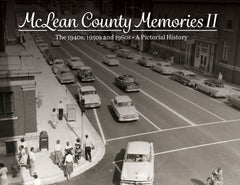Martin Luther King Jr. at Illinois Wesleyan University
One of the most prominent faces of the African-American Civil Rights Movement during the 1950s and ‘60s, the late Martin Luther King Jr. was instrumental in helping to shift American ideals and inspire meaningful legislation during one of the most tumultuous times in American history. Encouraging non-violent forms of civil disobedience, the self-possessed reverend led by example, exhibiting strength and composure when faced with great injustices and unmitigated violence.
In 1966, with the March on Washington, "I Have a Dream," and Selma behind him, King moved his operations north to lead the Chicago open housing movement. In February of that year he visited Illinois Wesleyan University in Bloomington for his fourth time in five years, where he delivered an impassioned speech addressing social and racial issues affecting the community and nation.
You can listen here.

Reverend Doctor Martin Luther King Jr. speaking on the Illinois Wesleyan University campus on February 2, 1966. Behind him are Coretta Scott King and Elizabeth Lindblom.
Courtesy Tate Archives & Special Collections, The Ames Library, Illinois Wesleyan University, Bloomington, Illinois
The president of Illinois Wesleyan introduced King as such:
“…Even though Dr. King could speak to us expertly in a half dozen fields, we as students have come tonight to hear his analysis of the field in which he is most closely identified these days: the present status of the racial issue in the United States of America and around the world.”
To this end Dr. King spoke for nearly an hour on the question of race relations and progress, punctuating flowing verse with harsh truths and calls to action:
“Fleecy locks and black complexion cannot forfeit nature’s claim. Skin may differ but affection dwells in black and white the same. And were I so tall as to reach the pole or to grasp the ocean at a span, I must be measured by my soul. The mind is the standard of the man.”
He ends his address as powerfully as it began, with a wish that someday we "will all be able to join hands and join in the old Negro spiritual, free at last! Free at last! Thank God Almighty, we are free at last!"
In one of his previous visits, King received an honorary degree and delivered the baccalaureate sermon during commencement.
Learn more about McLean County history and see hundreds of beautiful, historic photos in the Pantagraph’s new book, McLean County Memories II.

$35.95
$44.95